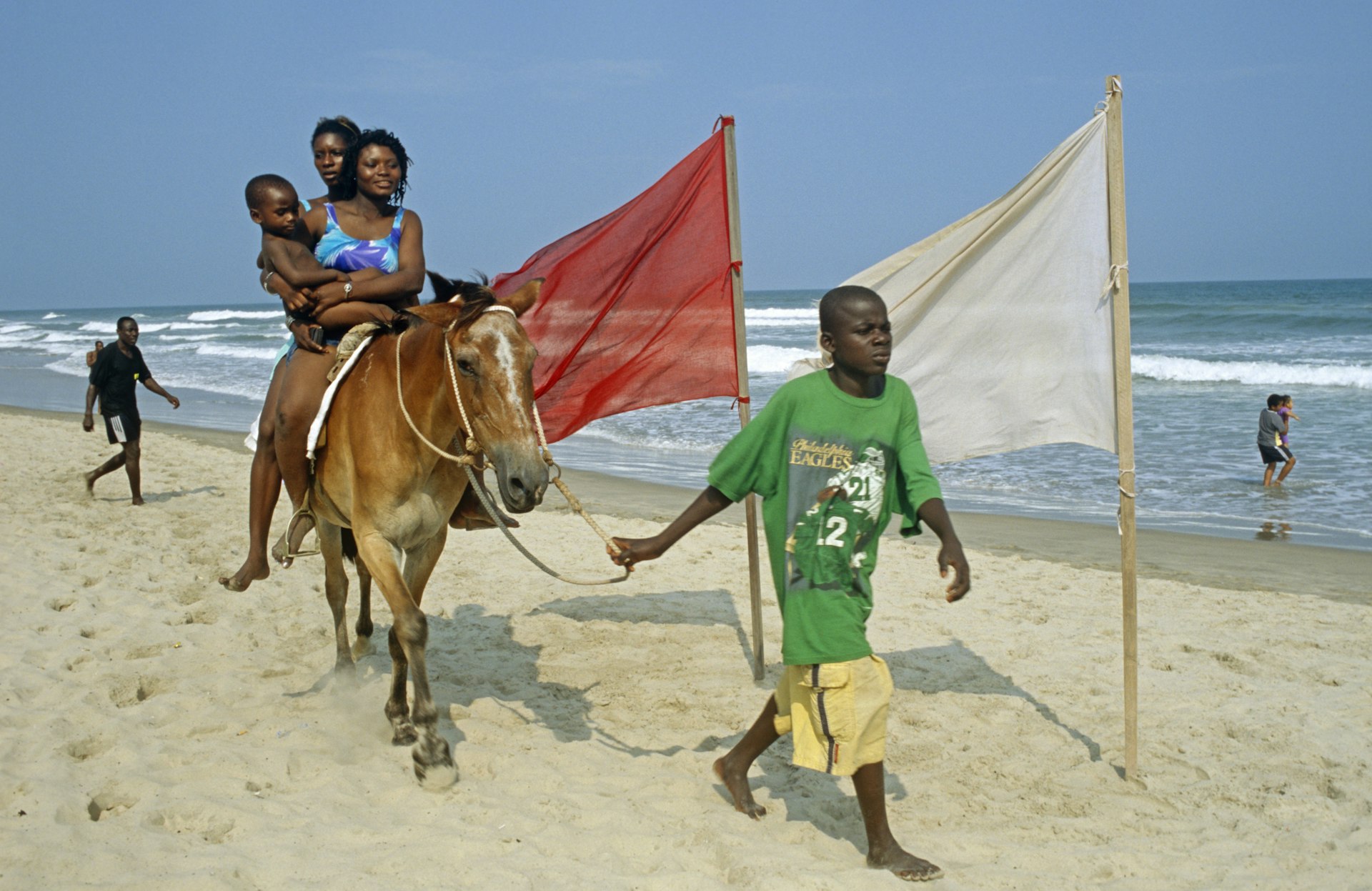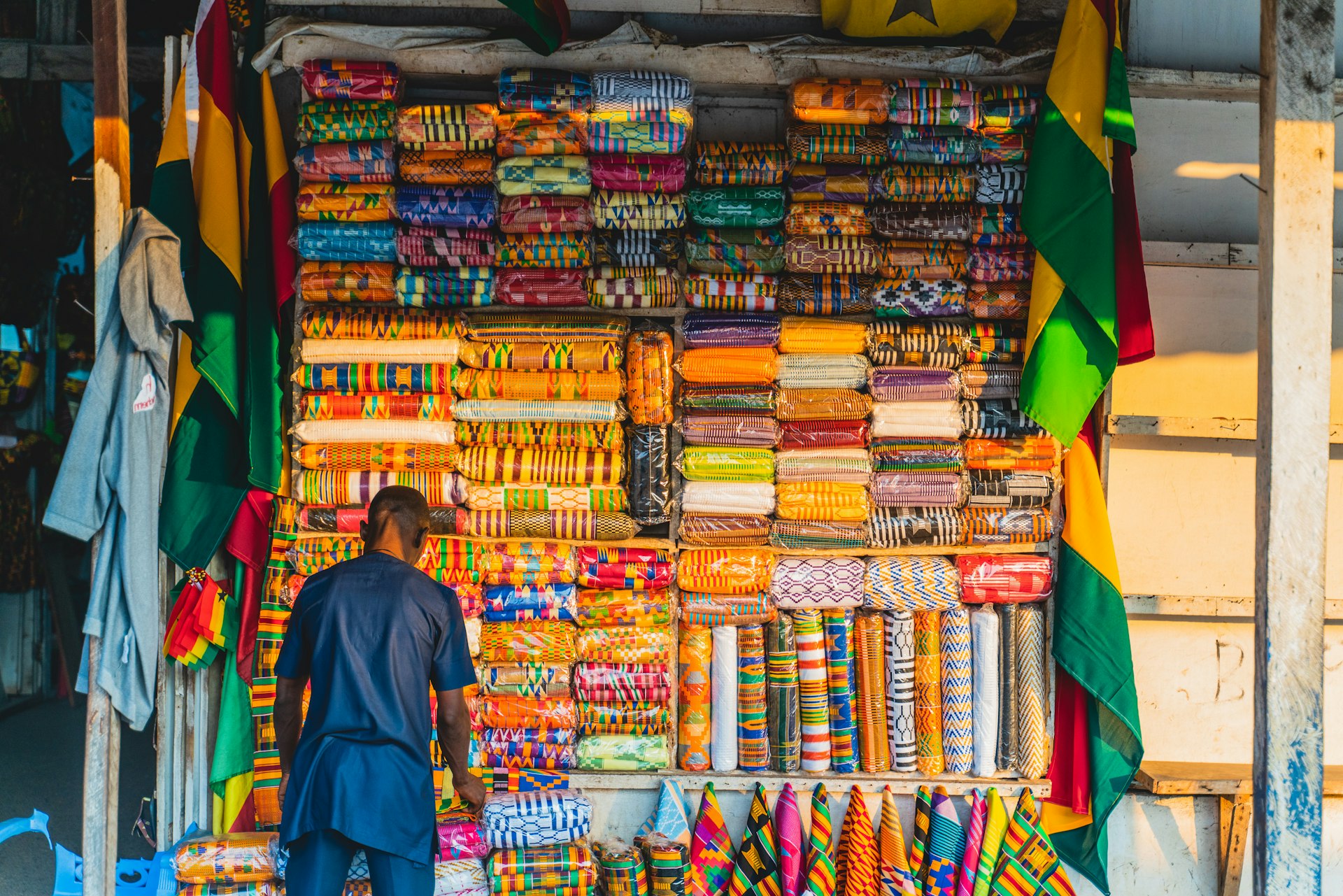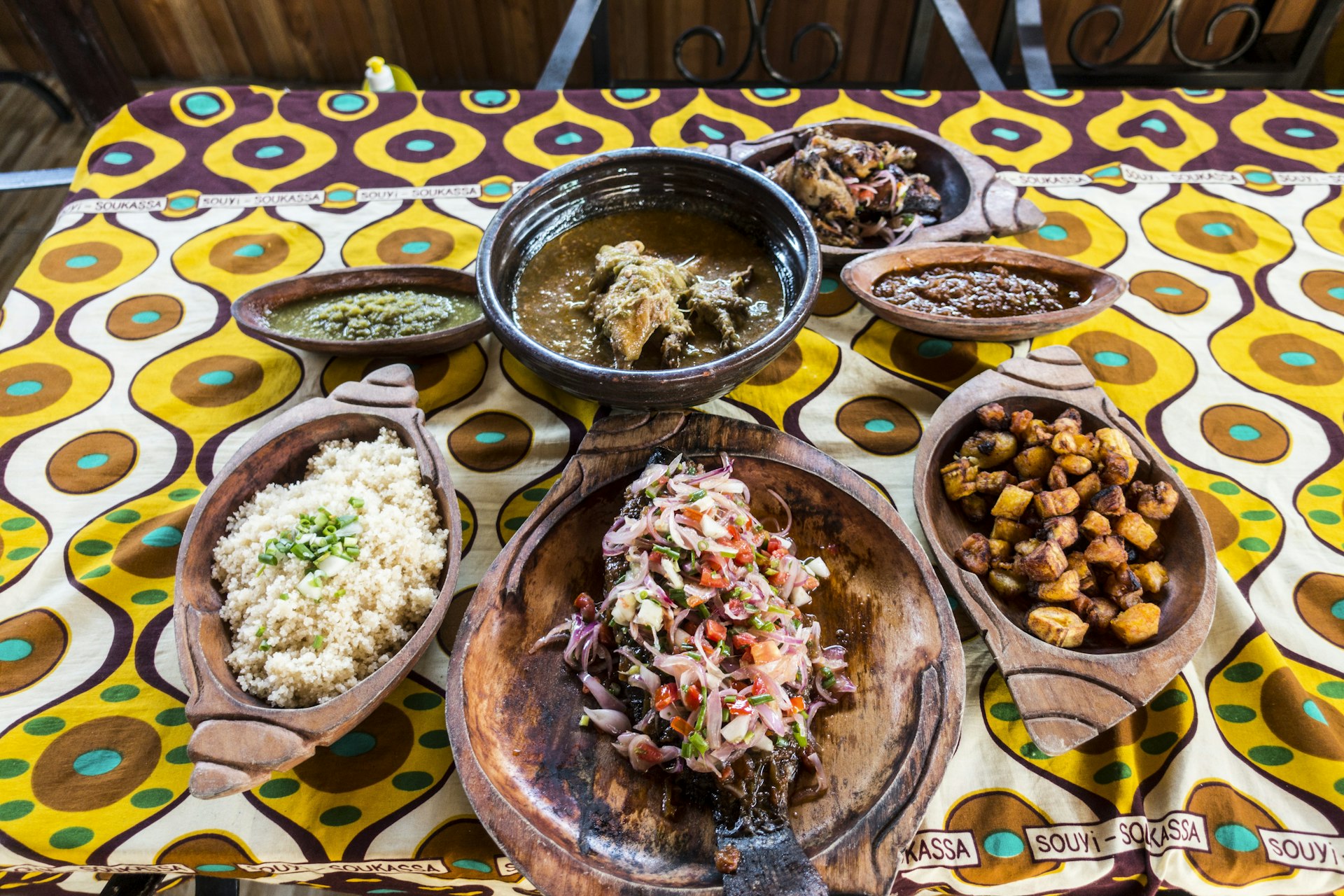Travelers have plenty to look forward to on their trip to culturally rich Ghana.
Ghana’s warm-hearted citizens make the country one of the friendliest spots in West Africa, and with its compelling history, vibrant clothing prints and flavorful dishes, tourists keep coming back for more.
Life in Ghana generally moves at a slow, relaxed pace, but it can also be chaotic and fast in different settings. Embrace the cultural differences, mass traffic and intense bargaining, and you may fall in love with the place. Whether you’re a first-time visitor or returning once again, here’s what you need to know to prepare for your trip to Ghana.
1. Gather the necessary documents for entry
Getting the paperwork together to visit Ghana is a process on its own and can be pricey. All visitors to Ghana must have a valid visa, and they range in cost depending on whether you apply for a single-entry or multiple-entry visa. Your visa for Ghana can take nearly three weeks to arrive unless you shell out extra for an expedited service.
A yellow fever vaccine is also required for entry into Ghana. Check with your local health department or medical clinics to get vaccinated. Malaria pills are also strongly recommended for visitors and can be prescribed by your doctor. If you can’t get your hands on them before coming, pharmacies in Ghana have plenty in stock, and they tend to be a lot cheaper.
2. Carry a copy of your passport
If you plan to visit different cities outside of Accra, be sure to print a copy of your passport to keep in your bag as you travel around the country. Police stops are common, and officers are known to ask for passport information.
3. Forget you have a left hand
In Ghana, actions like eating, waving and handing an item to someone are to be done with your right hand only (sorry, left-handers!). From an early age, many Ghanaians are taught that their left hand is to be used for cleaning themselves in the bathroom. Therefore, your left hand is considered filthy and should not be used for eating and other activities. Using your left hand for gestures and main tasks is considered highly disrespectful.
4. Eating with your hands is a cultural practice
Soup-based meals are paired with a starch staple food like fufu or banku and eaten with your hands (remember the right-hand rule!). Be observant of how those around you are eating, embrace the culture and dig in.
5. Keep your thumbs down
While the thumbs-up gesture in many places signifies approval, in Ghana, it shows disrespect.
6. Always greet others
Greetings in Ghana are a big deal, and it’s considered rude to not greet others. When you enter a room, you should say hello, good morning, good afternoon or good evening. When you meet a group of adults and greet them with a handshake, start with the person on the farthest right.
7. Respect your elders
Respect for elders is immense in Ghana. You should not greet elders with a hat on your head. If you are wearing a hat, take it off completely or lift it halfway while extending your greeting. Give up your seat on the bus for those older than you. Crossing your legs and having your hands in your pockets in the presence of elders are gestures that are frowned upon.

8. Be mindful of clothing cultures from city to city
Ghanaian clothing culture tends to lean more towards the conservative side. Accra is more relaxed, and you’re likely to see more shorts and crop tops. However, people elsewhere tend to cover up, so bring clothing that covers your chest and shoulders and reaches or goes past your knees.
9. Learn common phrases in Twi and other languages
Ghana is home to many different languages and ethnic groups. Twi, Ewe, Ga and Krobo are a few of many languages spoken depending on the region. English is widely spoken, but it’s important to remember that not everyone speaks it, especially once you are out of Accra and into rural parts of Ghana. Learning a few phrases in the local language is always appreciated and embraced by Ghanaians.
10. Watch your belongings
Pickpocketing and instances of petty theft might be the biggest concern you’ll have in Ghana. Pickpocketing can be prevalent in crowded areas like Osu, Madina and Makola Market. Always keep your bag in front of you and away from the roadside to avoid snatching incidents. Don’t carry a large amount of cash on you.
Your phone should always be in sight and accounted for. Motorcyclists in Accra are known to snatch phones out of the hands of people as they are passing by both in cars and when walking. It is wise to never stick your phone out of a car window for pictures and videos.
11. Expect the police to stop you
Police stops in Ghana occur frequently, mainly at night but they can happen throughout the day. Your vehicle can be randomly searched by officers, they may ask for ID and search your bag. These searches usually last for about five minutes, and it is best to comply.
Bribery is common in Ghana, and you may be asked to “dash” officers, which means tip. You can choose to give it or not as it’s often only C10 to C20 (US$0.95 to US$1.90), but it may make the difference between a five-minute stop and a 40-minute one.
Police encounters in Ghana are generally nothing to worry about. Officers may have a “tough guy” attitude, but as you talk to them more, the guard comes down and they are usually friendly.
12. Be wary of swift romantic encounters
It’s easy to meet new people in Ghana, and conversations are always flowing. People are open to new connections and tend to get close quickly at times, but be careful of fast-moving romantic approaches and those who immediately ask for favors or money. Scams are common in Ghana and can occur in romantic encounters.

13. Be sure to carry cash
When you’re in Ghana, always have some cash on you, or you may find yourself stuck. Not every establishment accepts card payments, and if they do, the POS systems are often down. ATMs are everywhere in Ghana, so getting cash is easy. You can still bring both credit and debit cards, but be prepared that not everywhere in Ghana will accept them.
Forex Bureau exchange shops will change your cash to Ghanaian cedis. Large denomination bills (100s) will get you a higher exchange rate.
14. Avoid drinking the water
Drinking tap water in Ghana is not a good idea because there’s no guarantee that the water has gone through the proper measures to ensure it is safe. Boil your water or use a water filter before you drink it.
15. Expect weak wi-fi in most areas
Ask your accommodation about wi-fi speeds before your arrival if you plan to use it. Even if internet speeds aren’t the best where you’re staying, you can find reliable spots such as Vida e Caffè and Basecamp Initiative.
16. Use cash for Uber and Bolt
Download Uber and Bolt before you arrive. While paying by card is an option on both apps, don’t plan on using it. Many drivers prefer cash and will cancel your ride if they find out you are paying using your card, or it could be an issue once you arrive at your destination. You can always ask the driver to stop at an ATM before the final drop-off point.
17. Get a local phone number
Ghana is a place where verbal conversations are preferred over texting and online communication. You can get a local SIM card at Vodafone, a phone carrier at A&C Mall in Accra, so that you have a Ghanaian number. Drivers often call their passengers to find out exactly where they are.
18. Never underestimate Accra traffic
Accra traffic is nothing to be played with. You may see an attraction that you want to check out that is only 15 minutes away from your accommodations but it might take an hour and a half simply because of the volume of traffic. It’s best not to set reservations for a place if you don’t have to. While traffic and delays can be extremely frustrating, you’ll have to learn to go with the flow.
